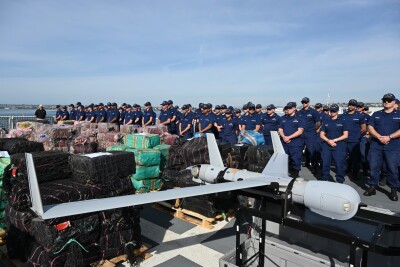Inmarsat recently unveiled plans for Orchestra, the communications network of the future. In the largest ever transformation of its current world-class services, Inmarsat Orchestra will bring together existing geosynchronous (GEO) satellites with low earth orbit satellites (LEO) and terrestrial 5G into an integrated, high-performance solution.
Whether for a ship in a crowded port, an aircraft preparing to land at LAX, or a defense force deployed in a remote location, Orchestra is designed to meet evolving connectivity needs in the mobility market with a service unmatched by any competitor offering, planned or in existence.
New services include close-shore navigation for autonomous vessels, next-generation emergency safety services for maritime crews, secure and tactical private networks for governments and direct-to-cloud connections for airlines. New segments set to benefit from Orchestra include energy rigs and drilling platforms, mid-market business aircraft, coastal vessels, smart passenger ships and urban air mobility.
Orchestra is unique because it draws together the benefits of multiple technologies to create one cohesive solution. LEO, GEO and terrestrial networks have never been combined at scale before to create a unified connectivity service for mobility customers, Inmarsat officials said. The result is a “dynamic mesh network” that will deliver high-performance connectivity everywhere. Bringing together the lowest average latency and fastest average speeds with unique resilience, Orchestra will eliminate the industry-wide challenge of congested network “hot spots.”
Inmarsat’s existing GEO satellites — both GX and L-band — will continue to provide global coverage, high performance, security and resilience. Terrestrial 5G adds ultra-high capacity in busy “hot spots”, such as ports, airports, and sea canals. A small constellation of LEO satellites will layer additional high capacity over further high-demand areas such as oceanic flight corridors. As a result, the network will offer the highest capacity for mobility users worldwide, and at “hot spots.”
The network will benefit from “dynamic mesh” technology, which allows individual customer terminals to direct traffic to and from other customer terminals. This means that a ship within reach of a 5G ground station can receive ample capacity for its own needs as well as route capacity onwards to other vessels beyond terrestrial reach. This effectively creates a mobile web of terminals that extend the network’s reach and improve its performance and resilience.
“Orchestra ensures Inmarsat is well positioned to deliver long-term, profitable growth by delivering new services to existing customers, targeting near-adjacent market segments, and maintaining a strong competitive position,” said Rajeev Suri, Inmarsat’s CEO. “We have a record of adopting the right technology at the right time. We plan to focus initially on delivering the Orchestra terrestrial network, while preparing for a future LEO constellation in the range of 150-175 satellites. This is a highly cost-effective approach that leverages Inmarsat’s leading GEO satellite networks as part of Orchestra’s unique multi-layer architecture.”
The new approach means that Inmarsat can easily boost capacity in high-density areas such as ports and airports, ensuring customer needs continue to be met well into the future with capacity scaled directly to match their requirements, Inmarsat officials said.
The initial five-year (2021-2026) total investment for Orchestra is expected to be in the order of $100 million.





